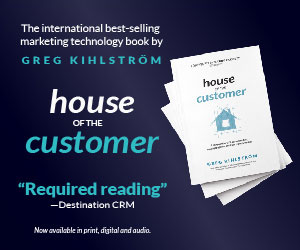This article was based on the interview with Justin Keller of Drift by Greg Kihlström for The Agile Brand with Greg Kihlström podcast. Listen to the original episode here:
Conversational marketing has emerged as a powerful tool for improving customer experience in today’s digital landscape. It allows brands to engage with their customers in real-time, providing immediate assistance and personalized interactions. Let’s discuss how conversational marketing improves customer experience by creating a more interactive and personalized environment, enhancing customer satisfaction, and driving customer loyalty.
One of the key benefits of conversational marketing is its ability to create a more interactive and personalized environment for customers. Traditional websites can often feel static and impersonal, lacking the human touch. With conversational marketing tools, such as live chat or bot-assisted chat, brands can greet visitors with context, allowing them to ask questions and receive immediate answers. This creates a more engaging experience, as customers feel valued and supported throughout their journey on the website. By bringing the website to life, conversational marketing enables brands to establish a connection with their customers, making them more likely to stay and explore further.
Moreover, conversational marketing plays a crucial role in enhancing customer satisfaction. By providing instant support and answers to customer queries, brands can address customer needs and concerns in real-time. This eliminates the frustration of waiting for a response and ensures that customers receive the information they need promptly. Additionally, conversational marketing allows brands to offer personalized recommendations and assistance based on customer preferences and behavior. This level of personalization enhances the overall customer experience, making customers feel understood and valued. As a result, customers are more likely to have a positive perception of the brand and feel satisfied with their interactions.
Furthermore, conversational marketing contributes to driving customer loyalty. By offering a seamless and convenient communication channel, brands can build trust and loyalty with their customers. Conversational marketing tools enable brands to maintain ongoing conversations with customers, even after they leave the website. This allows brands to nurture relationships, provide ongoing support, and offer personalized recommendations or promotions. By consistently engaging with customers in a meaningful way, brands can foster loyalty and encourage repeat purchases. Additionally, conversational marketing allows brands to gather valuable customer feedback and insights, enabling them to continuously improve their products and services based on customer preferences and needs.
Conversational marketing is a powerful tool for improving customer experience. By creating a more interactive and personalized environment, enhancing customer satisfaction, and driving customer loyalty, conversational marketing enables brands to establish meaningful connections with their customers. In today’s digital age, where customers expect immediate support and personalized experiences, conversational marketing plays a crucial role in meeting these expectations. Brands that embrace conversational marketing can differentiate themselves from their competitors by offering exceptional customer experiences, ultimately leading to increased customer satisfaction and loyalty.











